- Home
- Lorenzo Carcaterra
Payback Page 2
Payback Read online
Page 2
This case, the one dealing with my brother, is the first time I’ve brought one to the chief’s attention. He read through my nephew’s reports and gave me the go-ahead to take a deeper look.
“Did you get a chance to read the new file?” Chris asked. His voice was in the middle of the bridge that would take him from boy to man.
I nodded. “Last night. Pretty thorough, as I expected. The accounting firm where your dad worked was no doubt cutting corners and skimming from clients. That part’s clear.”
“Which part isn’t?”
“It’s a big leap, Chris, to go from that to pinning them down for killing your father,” I said. “Cheating and stealing is one thing. Murder? That’s a whole other arena. I’m not saying they’re not capable of it. Truth is, everybody is.”
“Then what are you saying?” Chris asked.
“I need to see more,” I said. “We all do. A stronger piece of evidence would be nice. What you put together in the files you’ve worked on is enough to rouse my suspicion. The chief’s, as well. Makes it worth our while to take a look at the firm. But we’re still missing enough evidence to corner them.”
“They doctored the brakes on the car,” Chris said. “That was in the first file I gave you.”
“Somebody doctored the brakes,” I said. “I doubt any of the accounting partners got under the front end and played with the lining.”
Chris shook his head. “Everyone who worked at my dad’s firm parked in the same garage,” he said. “It’s a park-and-lock. Cars are left there all hours of the night. It doesn’t take much time to split the lining and play with the electronics system.”
“Look,” I said, “I’m not saying I don’t buy your theory. Truth is, I do. But we have to tie it together, see if one loose end connects to another. If the accounting firm did anything to lead to the death of your mom and dad, we will take them down. That I promise.”
Chris nodded, lowered his head, and flipped the basketball from one hand to the other. There are times I forget that, as sharp as he is, he’s still a kid. A kid who took a hard blow, losing both his parents and seeing the world he knew and loved left in the rearview mirror.
“I’m sorry about what happened to your mom and dad,” I said. “And I’m sorry my brother is dead. And if these bastards are the ones who killed them, then I’m going to make them sorry, very sorry, for what they did.”
“Where will you start?”
“I need to see them up close,” I said. “Get inside, get a feel for how far they’ll go to keep a good thing going. And you can only do that with a face-to-face.”
“But they’ll know by your last name that you’re connected to my dad,” Chris said. “They’ll never agree to an appointment with his brother. Especially one who used to be a cop.”
“I’m the executor of your dad’s estate,” I said. “I’ll be going in to tie up loose ends. See if there’s anything they have of your dad’s. Vacation days that should be paid out, OT he might be owed. Like that. I won’t be there long, just long enough to get a sense of who it is I’m dealing with.”
“So you’re not going in to ask them to take you on as a client?”
“Not at all,” I said. “But that doesn’t mean we leave that side of the table empty. We send somebody else for that. Somebody from our little crew that these guys will not only think has money to toss around but that he’ll be doing it with cash. The kind of cash he doesn’t want too many to know he has. They’ll know enough about him to be too nervous to mess with his dough, but they will want his business.”
“Why?”
“It opens another potentially lucrative door for them,” I said. “If they make one guy with plenty of cash happy, think how giddy they can make his friends. We don’t know for sure if these guys have blood on their hands. It looks that way, but we’re not nailed-down certain of it. But we do know they’re snakes. I’m just going to put a little mongoose in their path and see how deadly the snakes are.”
3.
TRAMONTI’S
LATER THAT DAY
CARMINE TRAMONTI FLIPPED THROUGH A few pages of the morning edition of the New York Post and stopped when he came to the baseball box scores. “Want to see how my Dodgers did last night,” he said to me without glancing up.
“The Dodgers?” I said. “You’re a Yankee fan. Have been since I’ve known you.”
“Don’t get your drawers in a knot,” Carmine said. “My interest is strictly a financial one. Got a running bet going with Louie Almonti from the diner that the Dodgers take the National League West. He went and picked the Giants. If I win, means an extra fifteen hundred in my pocket and out of his.”
“What if neither one of you is right?” I asked. “What if the D’Backs take it?”
“Then I guess you could say we’ll both be shit out of luck,” Carmine said.
I smiled and pointed at his empty espresso cup. “You up for another?” I asked. “I need a favor.”
Carmine removed his reading glasses and rested them on top of the paper. He folded his hands and looked up at me. “I’m good on the coffee,” he said. “Doctor told me to ease up on the caffeine. But it looks to me like you could use a cup.”
Carmine signaled to a waitress standing by the bar, lifted his empty cup, and pointed a finger at me. She nodded and headed toward the coffee machines behind the counter. “You remember Lenny Santori?” Carmine asked.
I nodded. “Top-shelf jewelry guy,” I said. “He pulled off a few high-end scores before he got nabbed. Met him a few times, seemed like a nice guy as far as jewel thieves go.”
“He did his time,” Carmine said. “He’s living out a well-earned retirement someplace in Maine. Got him and his wife a nice cabin on a lake.”
“I bet it’s a great cabin,” I replied. “High-end jewelry pays well on the open market.”
“Anyways, reason I brought up his name is because the young lady bringing you your coffee is his granddaughter, Denise,” Carmine said. “She’s at NYU. Pre-med.”
I looked up as Denise rested a cappuccino in front of me and followed it with a quick smile. She stepped away and turned back toward the bar. “Half the staff in this place has had a relative or two do some prison time,” I said. “And the other half is waiting for a family member to make parole.”
“What can I say, Tank?” Carmine said. “I only hire the best.”
That’s my name, by the way. Tank. It’s actually Tommy Rizzo, but for as long as I can remember, most everyone, starting with my dad, called me Tank. And the guy across from me is Carmine Tramonti. These days, he’s the respected co-owner of a restaurant where the food is tough to beat, the wine list impressive but not wallet-crunching, and the jazz quartets that start to play after nine among the best you’ll ever hear. The place is old school in every way you can imagine.
And so is Carmine.
In his younger years, Carmine ran gambling operations for the major crime families in the tri-state area. He branched out into other areas, but his primary earnings came from numbers and sports betting. On a good day, just in the numbers action alone, Carmine brought in close to six figures cut up evenly among the five families minus his 5 percent off the top.
I’ve known him since I was a kid and, no, to answer your question before you even get to ask it, I never once busted him. For most of my years on the job, I worked homicide and narcotics, two areas Carmine made it his business to steer as far away from as possible. I’m sure he got his knuckles dirty now and then but nothing that warranted my looking his way. Not as far as I was concerned.
When I was a kid, everyone—and I do mean everyone—I knew placed bets with Carmine: the numbers every day, a crumpled dollar bill slipped to one of his runners along with a three-digit number they were convinced would bring home a winner. They bet on horse racing, boxing, football, basketball, baseball, even soccer, whene
ver there was a game, race, or a match on the board.
My mother bet on a number every day, often one that appeared in one of her dreams. She would give me a dollar and the number as I was heading off to school and tell me to stop by Big Dan’s candy store and place the bet. “My father came to me last night in a dream,” she told me one morning. “He told me to play the number one hundred and thirteen.”
“Your father?” I said, shaking my head. “He told you to bet on a number?”
“That’s right,” she said. “One hundred and thirteen. He then put an arm around me and held me close to his side.”
“I don’t get it,” I said, heading toward the front door. “Grandpa’s been dead for a long time, right?”
“Yes,” she said. “What does that have to do with anything?”
“So, he hasn’t seen you for the longest time, and when he does show up after all these years, all he does is to tell you to go bet on a number?” I said. “Doesn’t make any sense.”
“Never mind that,” my mother said. “What we talked about doesn’t concern you. What does is bringing Big Dan that dollar and that number before he closes the book.”
My mother never won on any number she ever bet, regardless of how many different combinations my grandfather passed her way. Come to think of it, I don’t know anyone in the neighborhood who did hit on a number. In case you’re wondering where the winning numbers come from, they’re the last three digits on the day’s take from the racetrack. If you want to spot a numbers player, they’re the ones who open the tabloids from the back page and go right to the racing stats. One glance and a shake of the head tells you all you need to know.
So if I ever made a move to take down Carmine’s numbers operation, I would have had to bring in my mother and half the women in the neighborhood as accessories. Besides, Carmine kept our neighborhood safe round the clock, not only from criminals but from dirty cops as well. He was our angel, his wings a little stained maybe, but an angel nonetheless.
4.
TRAMONTI’S
MOMENTS LATER
I TOOK A LONG, SLOW PULL on my cappuccino, then held the cup between my hands and looked over at Carmine. “I’d like you to set up a meeting with an accounting firm,” I said. “Make them think you’re eager to be a client. A client who prefers to deal only in cash.”
Carmine wedged himself in closer to the edge of the table. “This firm got a name?”
“Curtis, Strassman, and Randolph,” I said.
“The one your brother Jack worked for,” Carmine said.
“The very same.”
“What am I looking to get out of them?”
“Same thing I’m going to be looking for when I meet with them,” I said. “Get a feel for them, how they come across, how under the table they’re willing to go. See if they’re more than just money-skimmers. If they’re the kind that can and do go deeper than that.”
“How much deeper?” Carmine asked.
“Murder,” I said, holding Carmine’s look.
“So then Chris is not the only one who thinks his mom and dad didn’t die in a car accident,” Carmine said. “He’s got you on board as well.”
“He’s done the research, and most of the pieces seem to fit,” I said. “And those pieces point to my brother and his wife driving a car meant to kill them.”
“Most,” Carmine said, “but not all.”
“I can come up with some motives the firm had for wanting Jack out of the way,” I said. “But I can’t prove a single one. I’m working off theory and numbers on a spreadsheet.”
“But you know enough to pin these guys as dirty,” Carmine said.
I nodded. “They skim their clients,” I said. “There’s no doubt on that. Chris has dug up enough on these guys that I could have their shop closed on that fact alone. And it’s a fair bet they’re in heavy on some shady business ventures.”
“But that wouldn’t be enough, would it?” Carmine asked.
“Not if they killed my brother and his wife,” I said. “For that they need to go down a bigger hole than a stretch in a country-club prison.”
“How big a hole?” Carmine asked.
He knew the answer to the question. He survived for decades in a dark world that gave no refuge to those who killed a trusted friend or a family member. There was no middle ground on that turf. Carmine just needed to hear me say it.
I pushed back my chair and stood, my eyes still on Carmine. “Six feet deep will do just fine,” I said.
5.
THE LIBRARY AT THE NOMAD HOTEL
TWO DAYS LATER
THE LIBRARY IS A TWO-LEVEL lounge with an antique spiral staircase leading the way to the second floor. The staircase was imported from France, while the 3,500 books that line the Library’s shelves are neatly organized into seven sections, covering such topics as food, drink, New York, and music. The NoMad Bar supplies the food and drink, both delivered with an expense-account bill.
David Randolph, one of the main partners of the accounting firm of Curtis, Strassman, and Randolph, was sitting with his back to a shelf of books designated MIND AND SPIRIT. Randolph was tall and pencil-thin, dressed in a handmade Ciccarelli gray suit that hung comfortably on his slender body. He was in his mid-fifties and he didn’t bother to hide it. His hair was thick but streaked with gray, and his angular face was a road map of nooks and creases. He stretched out his legs and perched his brown Allen Edmonds lace shoes against the side of the nearest wall. He gave off the air of an impatient man, one who was used to having his every whim catered to without question.
Across from him was Samuel Butler, a short and rumpled man in his mid-forties. He had on a Men’s Wearhouse suit in desperate need of pressing and smelled of stale cigar smoke. His disheveled appearance seemed deliberate—one of those men who wanted to be seen and quickly dismissed. But Samuel Butler was not a man to be taken lightly, a fact the three partners at the firm were keenly aware of.
“So, Samuel,” Randolph said, “since your urgent call pulled me out of a meeting, I assume this is a pressing matter.”
“Let’s get us a drink first,” Butler said. “Then we’ll get down to it.”
Randolph caught the eye of a hovering waiter and displayed his usual impatience as the young man made his way to their table. “Two Jamesons on the rocks. And a bottle of sparkling water.”
“Would you like anything to go with that?” the waiter asked.
“Not for me,” Randolph said.
“Maybe later,” Butler said. “Let me get a drink inside me first and then we’ll see.”
“You seem annoyed, Samuel,” Randolph said, watching as the waiter left with their order. “It’s unlike you.”
“I got good reason to be annoyed,” Butler said. “More than one, actually.”
“Which are?”
“Were you or the other partners aware that Jack Rizzo had a family?” Butler asked.
Randolph nodded. “A son,” he said. “A boy, in his teens, if memory serves. Though I don’t see why he’d put you in such an agitated state.”
“Look,” Butler said, leaning hard against the shiny wood table, moving it slightly toward Randolph. “Your crew pays me to get rid of problems that come your way. And I’m goddamn good—no, make that better than good—at it. But I’m only as good as the information you give me. And on Rizzo, you guys fucked up big-time.”
Randolph’s hands balled into tight fists, and he glared silently across the table at Butler as the waiter rested the drinks in front of them. “If you gentlemen need anything else…,” the waiter said.
“We’ll find you,” Butler said, brushing the young man away.
Randolph moved his drink to the side. “My partners and I are not in the business of fucking up,” he said slowly, his cheeks flushed red, the veins in his neck bulging at the edges of the thick, st
arched white collar. “One of the reasons for that is because we keep people like you on our payroll. People who clean up problems. So, if an error was made on the Rizzo matter, I can only assume it came from your end.”
“I didn’t know he had a brother,” Butler said. “There was nothing in the file and nothing in the research I did. The guy popped up out of the clouds.”
“Doesn’t seem as if he mattered much to Jack,” Randolph said, regaining some of his composure. “Why should he matter to us?”
“Because he’s a cop,” Butler said. “At least, he used to be. Got shot off the job a few years back. Lives off his three-quarter tax-free police pension plus what extra he earns working as a Tin Badge.”
“He’s a security guard?”
“Not this guy,” Butler said. “On the job he was a hard-charger all the way. Top-shelf adrenaline junkie. Both him and his partner, a black guy named Monroe. They took down some big crews during their years together, working narcotics and homicide mostly. They bumped heads with the best and didn’t stop until their man went down or was sent away. Seems like old habits die hard.”
“So you’re saying they’re still active?” Randolph asked.
“The chief of detectives can dig into a discretionary fund and hire off-the-job cops to work a case,” Butler said. “It’s not sanctioned, and you won’t find it written up in any NYPD manual, but it’s done nonetheless. The chief can reach out and hand them a case and have them work it until it’s solved. They get paid but get no credit for the arrest or the takedown.”
“And this cop, Jack’s brother, is a problem for us?”
“A potential problem, yes,” Butler said. “The boy went to live with him after his parents died in the accident. Cops like this guy tend to ask a lot of questions and aren’t happy until they get answers they like. Maybe the kid’s been pumping him with information about your firm and how it works.”

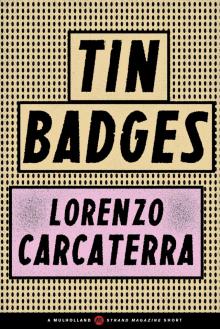 Tin Badges
Tin Badges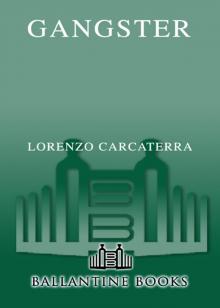 Gangster
Gangster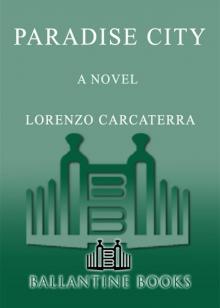 Paradise City
Paradise City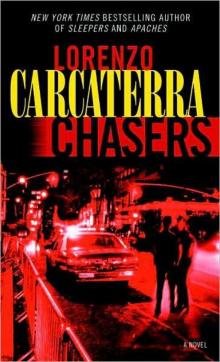 Chasers
Chasers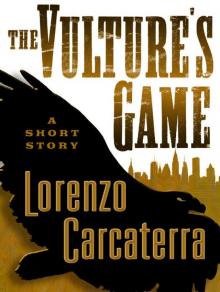 The Vulture's Game
The Vulture's Game Payback
Payback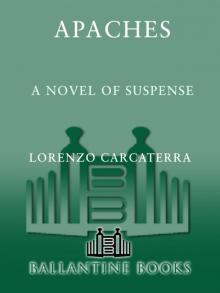 Apaches
Apaches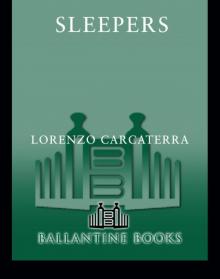 Sleepers
Sleepers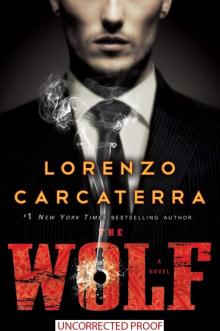 The Wolf
The Wolf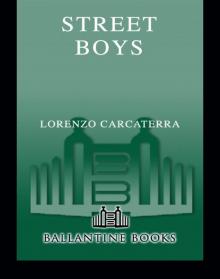 Street Boys
Street Boys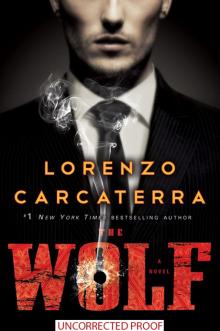 The Wolf: A Novel
The Wolf: A Novel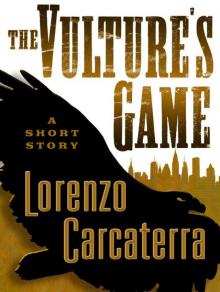 The Vulture's Game (Short Story)
The Vulture's Game (Short Story)